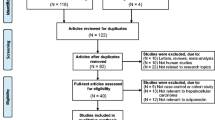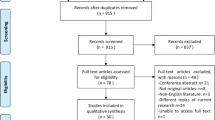Abstract
Objective
We planned this study to investigate the relation between serum adiponectin level and hepatocellular carcinoma (HCC): risk, features and prognosis.
Methods
The study included 100 patients with HCC and 40 healthy control subjects. Adiponectin levels were determined by an enzyme-linked immunosorbent assay kit.
Results
In the subset of patients with compensated cirrhosis, the mean serum adiponectin level was significantly lower in HCC cases compared to healthy controls (88.6 versus 115 ng/mL; P = 0.012). In addition, serum adiponectin levels correlated negatively with tumor size (P = 0.004) and were significantly lower in patients with vascular invasion and distant metastases (P = 0.03 and P = 0.02 respectively). Furthermore, the median overall survival was significantly higher in the high adiponectin group than the low adiponectin group (median 12.5 versus 9.5 months; log rank = 4.6, P = 0.03).
Conclusion
Decreased circulating adiponectin level may play a role in the development of HCC and is a potential poor prognostic marker. These data should be validated in further prospective studies. Also the mechanisms by which adiponectin affect the course of HCC need to be clarified.
Similar content being viewed by others
References
Barb D, Williams CJ, Neuwirth AK, et al. Adiponectin in relation to malignancies: a review of existing basic research and clinical evidence. Am J Clin Nutr, 2007, 86: 858–866.
Qian Y, Fan JG. Obesity, fatty liver and liver cancer. Hepatobiliary Pancreat Dis Int, 2005, 4: 173–177.
Housa D, Housová J, Vernerová Z, et al. Adipocytokines and cancer. Physiol Res, 2006, 55: 233–244.
Nishida M, Funahashi T, Shimomura I. Pathophysiological significance of adiponectin. Med Mol Morphol, 2007, 40: 55–67.
Petridou E, Mantzoros C, Dessypris N, et al. Plasma adiponectin concentrations in relation to endometrial cancer: a case-control study in Greece. J Clin Endocrinol Metab, 2003, 88: 993–997.
Dal Maso L, Augustin LS, Karalis A, et al. Circulating adiponectin and endometrial cancer risk. J Clin Endocrinol Metab, 2004, 89: 1160–1163.
Goktas S, Yilmaz MI, Caglar K, et al. Prostate cancer and adiponectin. Urology, 2005, 65: 1168–1172.
Chen DC, Chung YF, Yeh YT, et al. Serum adiponectin and leptin levels in Taiwanese breast cancer patients. Cancer Lett, 2006, 237: 109–114.
Ishikawa M, Kitayama J, Kazama S, et al. Plasma adiponectin and gastric cancer. Clin Cancer Res, 2005, 11: 466–472.
Yildirim A, Bilici M, Cayir K, et al. Serum adiponectin levels in patients with esophageal cancer. Jpn J Clin Oncol, 2009, 39: 92–96.
Kumor A, Daniel P, Pietruczuk M, et al. Serum leptin, adiponectin, and resistin concentration in colorectal adenoma and carcinoma (CC) patients. Int J Colorectal Dis, 2009, 24: 275–281.
Soliman AS, Hung CW, Tsodikov A, et al. Epidemiologic risk factors of hepatocellular carcinoma in a rural region of Egypt. Hepatol Int, 2010, 4: 681–690.
Calle EE, Rodriguez C, Walker-Thurmond K, et al. Overweight, obesity, and mortality from cancer in a prospectively studied cohort of U.S. adults. N Engl J Med, 2003, 348: 1625–1638.
Llovet JM, Fuster J, Bruix J, et al. The Barcelona approach: diagnosis, staging, and treatment of hepatocellular carcinoma. Liver Transpl, 2004, 10(2 Suppl 1): S115–120.
Hui CK, Zhang HY, Lee NP, et al. Serum adiponectin is increased in advancing liver fibrosis and declines with reduction in fibrosis in chronic hepatitis B. J Hepatol, 2007, 47: 191–202.
Liu CJ, Chen PJ, Lai MY, et al. High serum adiponectin correlates with advanced liver disease in patients with chronic hepatitis B virus infection. Hepatol Int, 2009, 3: 364–370.
Mantzoros C, Petridou E, Dessypris N, et al. Adiponectin and breast cancer risk. J Clin Endocrinol Metab, 2004, 89: 1102–1107.
Gonullu G, Kahraman H, Bedir A, et al. Association between adiponectin, resistin, insulin resistance, and colorectal tumors. Int J Colorectal Dis, 2010, 25: 205–212.
Petridou ET, Mitsiades N, Gialamas S, et al. Circulating adiponectin levels and expression of adiponectin receptors in relation to lung cancer: two case-control studies. Oncology, 2007, 73: 261–269.
Author information
Authors and Affiliations
Corresponding author
Additional information
Supported by a grant from the Project Funding Unit, University of Mansoura, Egypt.
Rights and permissions
About this article
Cite this article
Shams, M.E.E., Al-Gayyar, M.M.H., Barakat, E.A.M.E. et al. Circulating adiponectin: a potential prognostic marker for hepatocellular carcinoma. Chin. -Ger. J. Clin. Oncol. 10, 570–574 (2011). https://doi.org/10.1007/s10330-011-0859-7
Received:
Revised:
Accepted:
Published:
Issue Date:
DOI: https://doi.org/10.1007/s10330-011-0859-7




